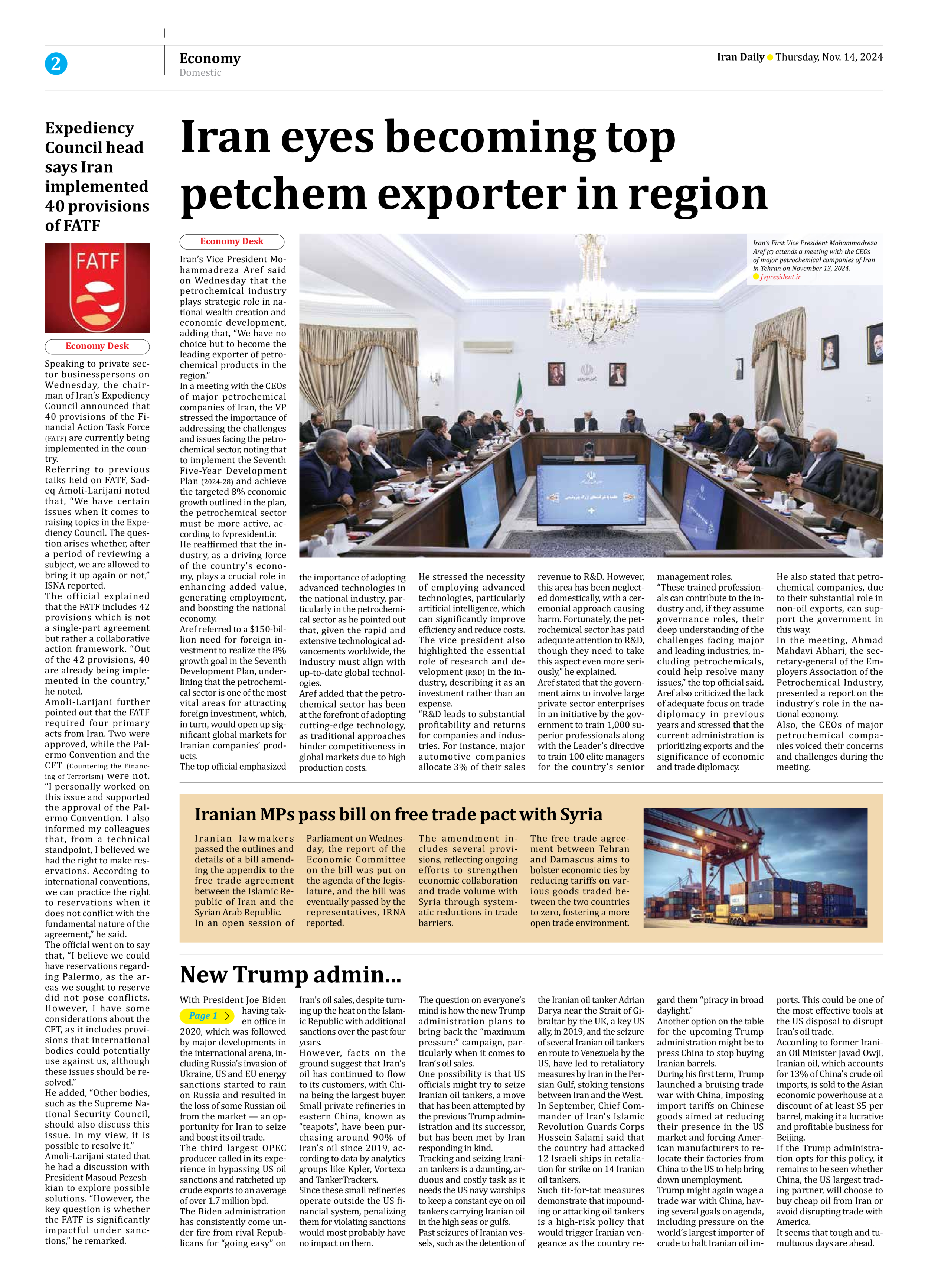
Iran eyes becoming top petchem exporter in region
Iran’s Vice President Mohammadreza Aref said on Wednesday that the petrochemical industry plays strategic role in national wealth creation and economic development, adding that, “We have no choice but to become the leading exporter of petrochemical products in the region.”
In a meeting with the CEOs of major petrochemical companies of Iran, the VP stressed the importance of addressing the challenges and issues facing the petrochemical sector, noting that to implement the Seventh Five-Year Development Plan (2024-28) and achieve the targeted 8% economic growth outlined in the plan, the petrochemical sector must be more active, according to fvpresident.ir.
He reaffirmed that the industry, as a driving force of the country’s economy, plays a crucial role in enhancing added value, generating employment, and boosting the national economy.
Aref referred to a $150-billion need for foreign investment to realize the 8% growth goal in the Seventh Development Plan, underlining that the petrochemical sector is one of the most vital areas for attracting foreign investment, which, in turn, would open up significant global markets for Iranian companies’ products.
The top official emphasized the importance of adopting advanced technologies in the national industry, particularly in the petrochemical sector as he pointed out that, given the rapid and extensive technological advancements worldwide, the industry must align with up-to-date global technologies.
Aref added that the petrochemical sector has been at the forefront of adopting cutting-edge technology, as traditional approaches hinder competitiveness in global markets due to high production costs.
He stressed the necessity of employing advanced technologies, particularly artificial intelligence, which can significantly improve efficiency and reduce costs.
The vice president also highlighted the essential role of research and development (R&D) in the industry, describing it as an investment rather than an expense.
“R&D leads to substantial profitability and returns for companies and industries. For instance, major automotive companies allocate 3% of their sales revenue to R&D. However, this area has been neglected domestically, with a ceremonial approach causing harm. Fortunately, the petrochemical sector has paid adequate attention to R&D, though they need to take this aspect even more seriously,” he explained.
Aref stated that the government aims to involve large private sector enterprises in an initiative by the government to train 1,000 superior professionals along with the Leader’s directive to train 100 elite managers for the country’s senior management roles.
“These trained professionals can contribute to the industry and, if they assume governance roles, their deep understanding of the challenges facing major and leading industries, including petrochemicals, could help resolve many issues,” the top official said.
Aref also criticized the lack of adequate focus on trade diplomacy in previous years and stressed that the current administration is prioritizing exports and the significance of economic and trade diplomacy.
He also stated that petrochemical companies, due to their substantial role in non-oil exports, can support the government in this way.
In the meeting, Ahmad Mahdavi Abhari, the secretary-general of the Employers Association of the Petrochemical Industry, presented a report on the industry’s role in the national economy.
Also, the CEOs of major petrochemical companies voiced their concerns and challenges during the meeting.







